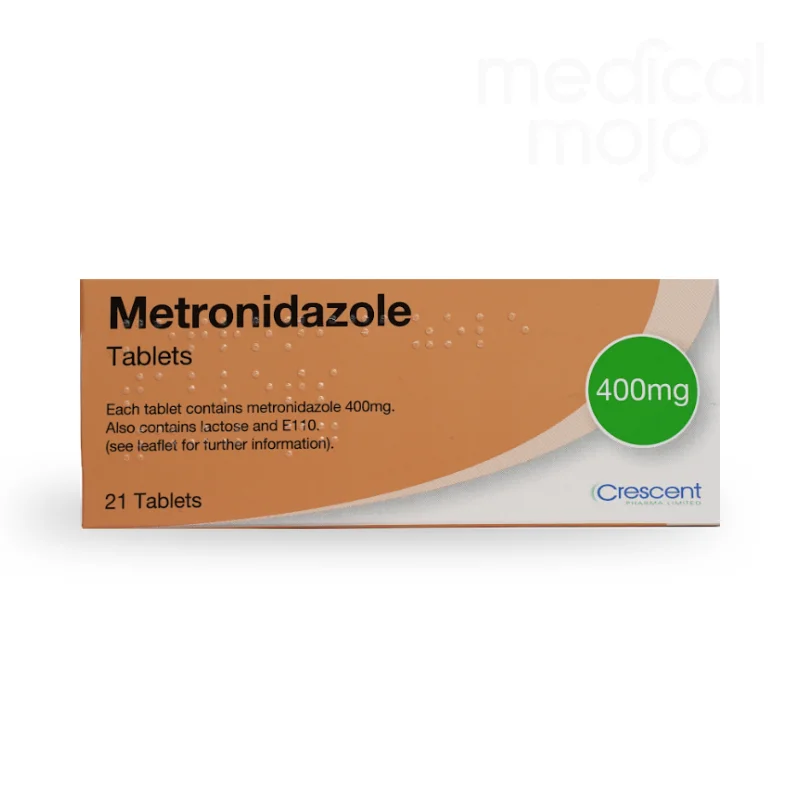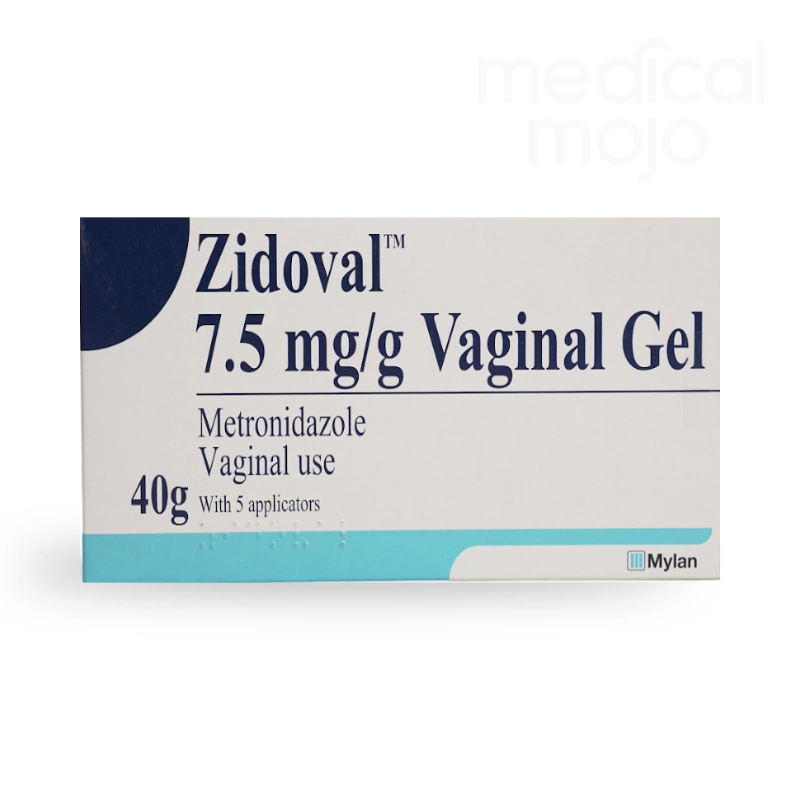What is Metronidazole 400mg?
Metronidazole 400mg is commonly used to treat bacterial vaginosis (BV), a prevalent vaginal infection caused by an imbalance of naturally occurring bacteria in the vagina. BV can lead to symptoms such as unusual vaginal discharge, odor, itching, and discomfort.
When treating BV, Metronidazole 400mg is typically prescribed in the form of oral tablets, often administered twice a day for seven days. The medication works by targeting and eliminating the overgrowth of specific bacteria associated with BV. It is crucial to follow the prescribed treatment regimen fully to ensure effectiveness and reduce the risk of recurrence or complications.
Metronidazole is effective in restoring the normal bacterial balance in the vagina and alleviating the symptoms of BV. Always consult a healthcare provider for proper diagnosis and treatment recommendations tailored to individual needs.
What is Metronidazole 400mg used for?
Metronidazole 400mg is a commonly prescribed medication for the treatment of bacterial vaginosis (BV), a condition characterized by an imbalance of the normal bacterial flora in the vagina. BV is the most prevalent vaginal infection among women of reproductive age, often caused by an overgrowth of certain types of bacteria, particularly Gardnerella vaginalis and other anaerobes. This imbalance disrupts the natural vaginal environment, leading to symptoms such as abnormal vaginal discharge, a strong fishy odor, itching, and discomfort.
Metronidazole can be purchased online if you have a history of bacterial vaginosis (BV) that has been previously diagnosed and effectively treated by your GP.
You may be eligible for online BV treatment if you have:
- Experienced vaginal symptoms such as a fishy odor and thin discharge
- Been diagnosed with bacterial vaginosis by your doctor
- Received a positive result from a home test for bacterial vaginosis
- Had successful results with Metronidazole previously prescribed for BV
If this is your first experience with BV, if your symptoms do not align with typical BV symptoms, or if you have received a negative test result, it is advisable to consult your GP or visit a local sexual health clinic for further assessment.
If you are uncertain whether your symptoms are due to bacterial vaginosis, you can use a Canestest Home Kit to confirm. Vaginal discharge and odor can be caused by various bacterial infections, including sexually transmitted infections (STIs), so accurate identification of your condition is crucial for finding the appropriate treatment.
Treating Recurrent BV with Metronidazole
Metronidazole tablets can also be used to manage recurrent bacterial vaginosis. BV may return within three months after initial treatment. If your first course of Metronidazole was effective and your symptoms have reappeared, you can safely use Metronidazole again.
However, if you experience BV more than twice within six months or four times within twelve months, you should seek advice from your GP or a sexual health clinic.
How does Metronidazole 400mg work?
Metronidazole 400mg is effective in treating bacterial vaginosis (BV) due to its action as an antibiotic with specific antimicrobial properties. Here’s how it works:
- Targeted Action Against Bacteria: Metronidazole is particularly effective against the anaerobic bacteria commonly associated with BV. Anaerobic bacteria thrive in low-oxygen environments, and Metronidazole disrupts their DNA synthesis, inhibiting their ability to reproduce and causing their death.
- Restoration of Normal Flora: BV is characterized by an imbalance in the vaginal flora, where beneficial bacteria like lactobacilli are reduced and harmful bacteria proliferate. By eliminating the harmful bacteria, Metronidazole helps restore the natural balance of vaginal flora.
- Reduction of Symptoms: As Metronidazole works to reduce the overgrowth of harmful bacteria, it alleviates the common symptoms of BV, such as fishy odor and abnormal discharge.
- Penetration and Efficacy: Metronidazole, when taken orally, is well absorbed and effectively reaches the vaginal tissues. It concentrates in the tissues and exerts its antibacterial effects locally.
By addressing the bacterial imbalance in the vagina, Metronidazole helps to resolve the symptoms of BV and restores the normal microbial environment.
Who should not take Metronidazole 400mg?
Do not use Metronidazole tablets if you have:
- An allergy to Metronidazole or any of its other ingredients, please refer to the patient information leaflet. Signs of an allergic reaction may include a rash, difficulty breathing or swallowing, or swelling of the lips, face, throat, or tongue.
If any of these conditions apply to you, avoid taking Metronidazole. If you're uncertain, consult your doctor or pharmacist before starting the medication.
Warnings and Precautions: Consult your doctor or pharmacist before using Metronidazole if you have:
- Liver issues
- Are undergoing kidney dialysis
- A nervous system disorder
If you have a history of Cockayne syndrome, your doctor should monitor your liver function closely during and after treatment with Metronidazole.
If you experience any of the following symptoms, stop taking Metronidazole and contact your doctor immediately:
- Abdominal pain, loss of appetite, nausea, vomiting, fever, general malaise, fatigue, jaundice, dark urine, clay-colored stools, or itching.
Food and Drink: Avoid alcohol during treatment and for 48 hours after completing Metronidazole, as it may cause unpleasant reactions such as nausea, vomiting, stomach pain, hot flushes, rapid or irregular heartbeat, and headaches.
Pregnancy and Breastfeeding: Consult your doctor if you are pregnant, planning to become pregnant, or breastfeeding. Metronidazole should only be used during pregnancy if absolutely necessary and may not be suitable while breastfeeding due to potential transfer into breast milk.
Driving and Using Machines: Metronidazole may cause drowsiness, dizziness, confusion, hallucinations, seizures, or visual disturbances. If you experience any of these effects, avoid driving or operating machinery.
Monitoring: If you use Metronidazole for more than 10 days, your doctor may perform additional tests to monitor your health.
What are the side effects with Metronidazole 400mg?
Like all medications, Metronidazole can cause side effects, although not everyone experiences them.
Seek immediate medical attention if you experience:
- Swelling of the hands, feet, ankles, face, lips, or throat, which might cause difficulty swallowing or breathing. You may also notice an itchy, lumpy rash (hives) or nettle rash (urticaria). These symptoms could indicate an allergic reaction to Metronidazole.
- Skin rashes accompanied by blistering, peeling, or bleeding around the lips, eyes, mouth, nose, or genitals, along with flu-like symptoms and a high fever. These could be signs of Stevens-Johnson Syndrome or toxic epidermal necrolysis.
- A rare but serious side effect such as encephalopathy, which may present with symptoms like fever, a stiff neck, headache, hallucinations, difficulty using your arms and legs, trouble speaking, or confusion.
Contact your doctor immediately if you notice:
- Unexpected infections, mouth ulcers, bruising, bleeding gums, or severe fatigue, which may suggest a blood problem.
- Yellowing of the skin and eyes, which could indicate liver issues (jaundice).
- Severe abdominal pain that may extend to your back, possibly signaling pancreatitis.
Inform your doctor or pharmacist if you experience:
- Very rare side effects (affecting fewer than 1 in 10,000 people), including confusion, hallucinations, seizures, drowsiness, dizziness, blurred or double vision, headaches, severe liver problems, dark urine, or muscle and joint pain.
- Side effects of unknown frequency from available data, such as nausea, vomiting, upset stomach, diarrhea, depression, numbness, tingling, weakness in the limbs, an unpleasant taste in the mouth, a coated tongue, loss of appetite, fever, eye pain (optic neuritis), or symptoms like fever, nausea, vomiting, headache, a stiff neck, and sensitivity to light, which may indicate meningitis.
- Hearing loss, tinnitus (ringing in the ears), or a recurring rash or skin discoloration.
Reporting Side Effects: If you experience any side effects, consult your doctor, pharmacist, or nurse. Report any side effects, including those not listed in this leaflet, via the Yellow Card Scheme at
www.mhra.gov.uk/yellowcard or by searching for MHRA Yellow Card in the Google Play or Apple App Store. Reporting helps provide more information on the safety of this medication.
Does Metronidazole 400mg interact with other medicines?
Inform your doctor or pharmacist if you are currently taking or have recently taken any other medications, including over-the-counter and herbal remedies. Metronidazole can interact with various drugs, affecting how they work and vice versa. Specifically, be aware of interactions with:
- Anticoagulants like warfarin (which may require dosage adjustments)
- Lithium (which may affect kidney function)
- Antiepileptic drugs such as phenytoin, primidone, and phenobarbitone
- 5-fluorouracil (for cancer)
- Busulfan (for leukemia)
- Ciclosporin (for organ transplant)
- Disulfiram (for alcoholism)









